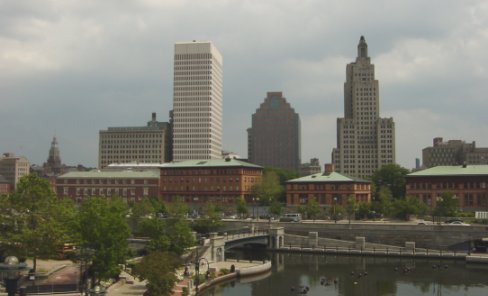
Urbanist Richard Florida talks often about hub cities. These are cities that define a region – Atlanta in the Southeast, Boston in New England, New York City and DC in the middle. Young educated people roll down into these cities like marbles on those tracks for children – they may take a roundabout route, but they all end up in the same place.
Demographers and urban leaders agonize over this, and rightfully so. Some neighborhoods in DC and Boston have young populations with 50% of residents holding college degrees, while smaller cities bleed their young people to those neighborhoods. Edward Glaser, urban economist at Harvard, reminds us that cities are people not buildings, and cities across the country feel they are losing the battle for the best people. Leaders in cities like Providence, my hometown of Greensboro, NC, or even more rural areas worry as they watch their populations age. Talented students graduate high school or college in these towns, and feel the gravitational pull of the regional hub cities.
Cities like Providence try desperately to be attractive spokes off the hub before all of their talented residents move away – places where one can work and live more cheaply and be close to the hub, but not in it. The 38 Studios Hail Mary was part of this strategy: trying to get some new creative-class jobs into the Ocean State in any way possible.
The problem compounds because of how many industries require so many fewer workers than they used to. Watch Mad Men and notice how many people are typists or switchboard operators – jobs replaced by computers and copy machines and Microsoft Word. Sterling Cooper (the ad agency in Mad Men) today would need maybe one-fourth of the staff and one-third of the office space that it needed in 1963. Skilled people with MacBooks, color printing, and Photoshop can do what it took 5 people to do then.
Because of this, midsize cities churn with ideas of how to fill their homes and office buildings with the right people. The 38 Studios debacle was about filling up a historic office building, One Empire Plaza, as much as anything else. Vibrant cities build upon vibrant downtowns, and that happens if lots of people live and work downtown. This becomes a challenge when each firm needs fewer workers and less space. Remember that had the 38 Studios gambit worked, and filled downtown Providence with high-paying high-tech jobs, it would have been seen as visionary and worth the investment.
Midsize cities try their hardest to get creative, educated, young people to move to cities besides the hubs, through programs to tie university students into the community, for example. Think about it. How many of you plan to live in a city of less than 500,000 people when you graduate, including Providence? If you grew up in a city that size, what would it take for you to move back? Of all your friends who are graduating, how many are moving to small cities?
The Atlantic Cities recently ran a piece titled “There are More Losers than Winners in America’s New Economic Geography.” I hope with some innovation, skill, and a dash of luck, we can make some more winners. I have spent my whole life in America’s small cities and small towns (Greensboro, NC, Lexington, VA, and Providence, RI). I love these places, and hate to see them get pushed around by economic tides far beyond their control.
